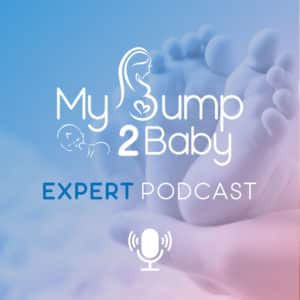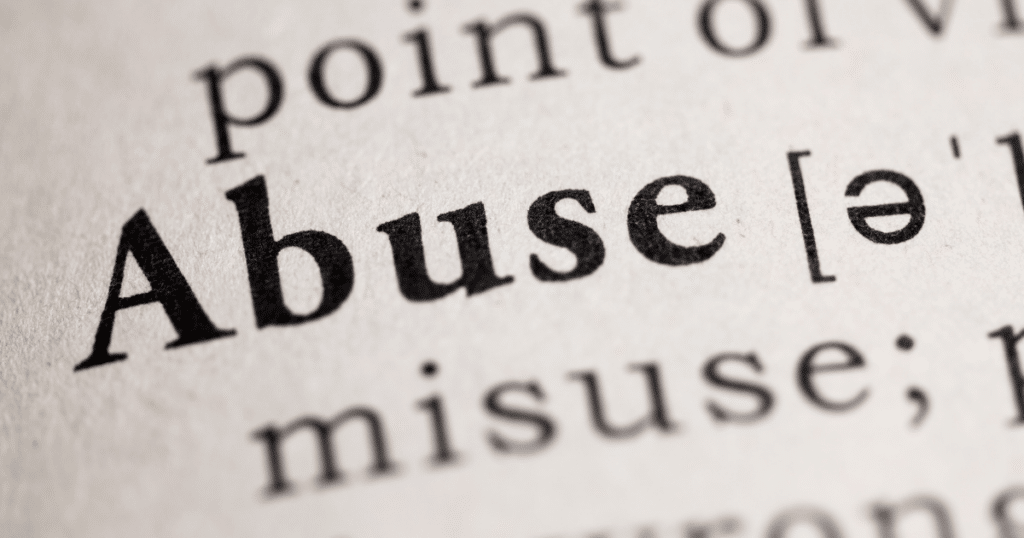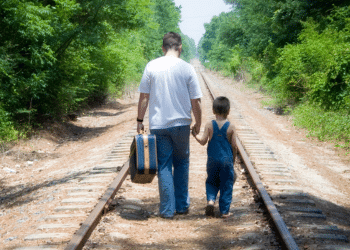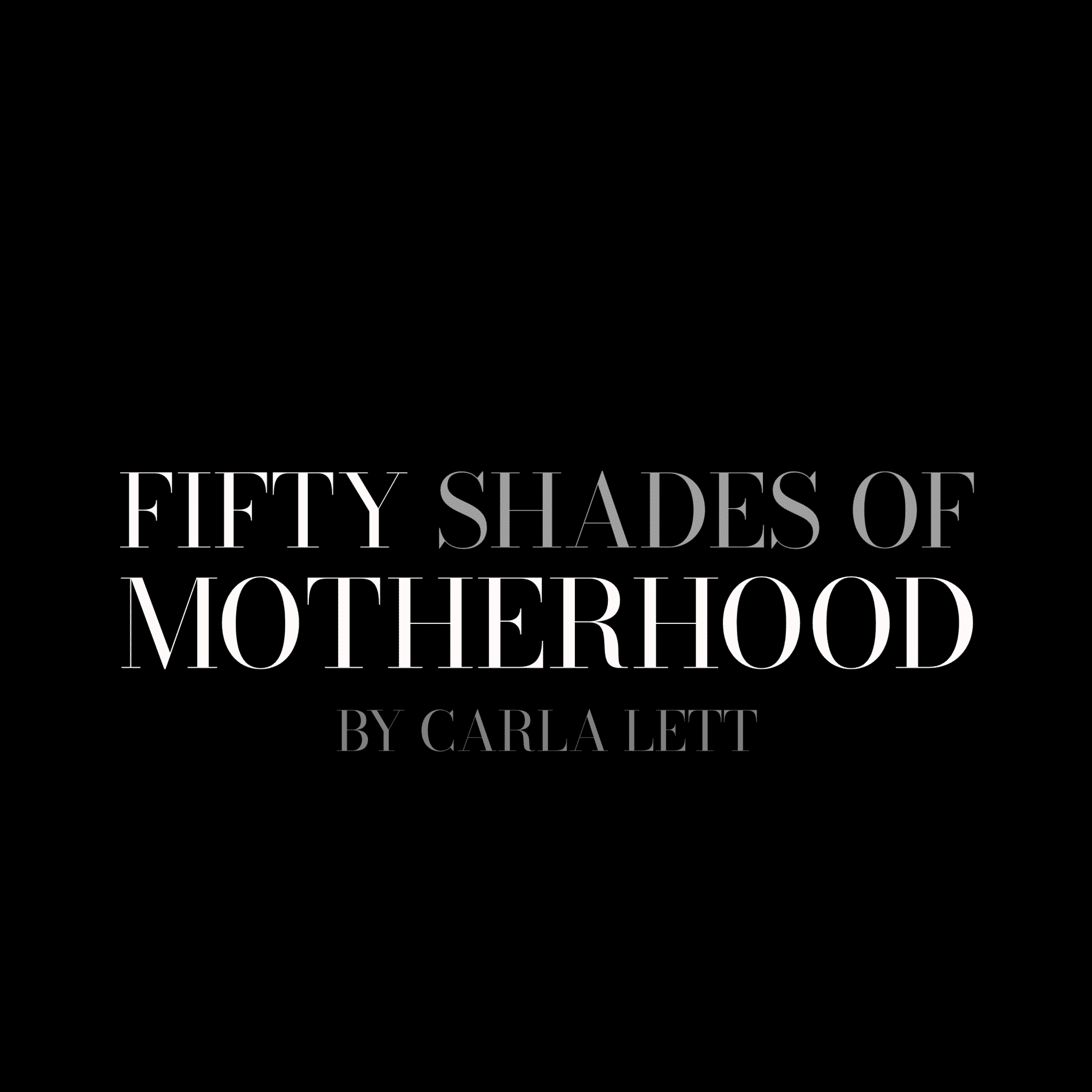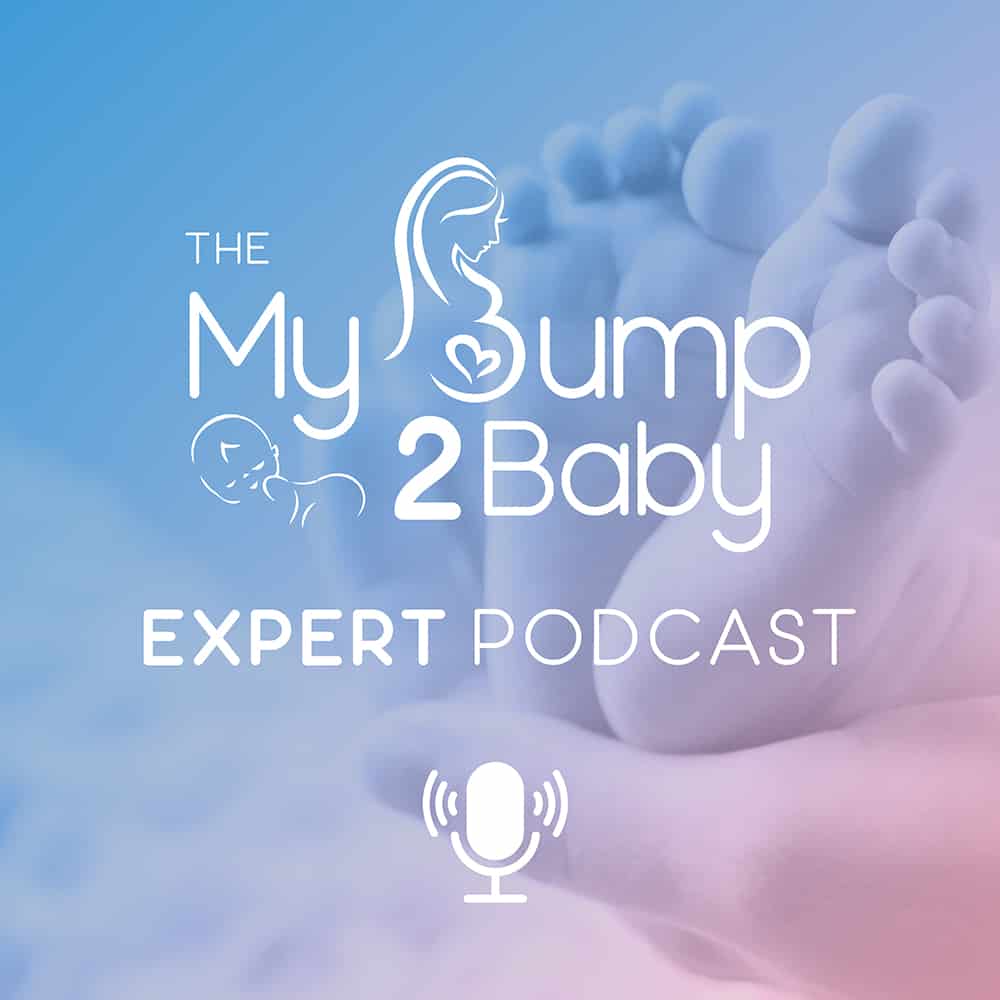- Domestic Abuse-Law and Procedure
Today on mybump2baby’s expert podcast we are joined by Scott Emsden from Bates Wells & Braithwaite our expert family law firm in Ipswich.
We are talking about Domestic abuse, how to recognise it and what help is available to you if you are experiencing domestic abuse.
see the listing https://www.mybump2baby.com/familyservices/bates-wells-braithwaite/
Find your nearest family law solicitor www.mybump2baby.com/familyprotectionlegal
Office number is 01473 219282 and email [email protected]
[00:00:00] Carla: We are Google’s number one, baby and toddler directory. We cover everything from pregnancy to preschool, and we are home to over 8,000 business listings. Join over 160,000 parents using our website each month, and you can find your local groups, classes, services, and support in your local area. Are you looking for local baby and toddler swimming lessons in your local area?
[00:00:33] Carla: Head over to www.mybump2baby.com to find your nearest swimming lessons.
[00:00:52] Carla: Hello and welcome to My Bump 2 Baby Expert podcast, where we bring experts from all over the uk. To answer your questions on everything pregnancy to preschool.
[00:01:15] Carla: Hello everybody and welcome to my Bump 2 Baby’s Expert podcast. As you are probably aware, we work with Family Law Solicitors throughout the UK today we are joined by our family law experts in Ipswich, and we’re joined by Scott Emden, the partner of Bates Wells & Braithwaite Solicitors. Hello everybody, and welcome to My Bump 2 Baby’s Expert podcast.
[00:01:45] Carla: Today I am speaking to Scott Emden, partner of our family Law solicitor in Ipswich, Bates Wells & Braithwaite. Hi Scott. How are you?
[00:01:56] Scott: Hi. Yeah, I’m, I’m very good. Thank you. Thanks for having me on.
[00:01:59] Carla: I’m looking forward to talking to you today about an important subject, a very important subject around domestic abuse. Um, do you see a lot of these cases, Scott?
[00:02:08] Scott: Um, Yeah, so when I, um, started out here when I first qualified, I did a lot of work with, um, Lighthouse Women’s Aid, which, uh, I, I think they’re local. I’m not sure whether they’re nationwide or not, but they’re certainly a local, um, organisation that support victims of domestic abuse.
[00:02:25] Scott: Um, so at least initially it was a, it was a large part of, of what I did in terms of, you know, assisting people with restraining orders or issues in relation to children following the breakdown of, of, of relationships. And I still do it, still do it now. It forms a big part of what I do. Um, and unfortunately, yeah, it, it, it, it is quite common and, and there’s certainly a lot of people out there that need help with it.
[00:02:48] Carla: Yeah, definitely. I mean, according to the National Center of Domestic Violence, one in five adults experienced domestic abuse during their lifetime. Um, and I actually read a statistic that really shocked me before, um, which was last year, 2.4 million adults were actually victims in domestic abuse. I mean, it’s so sad and heartbreaking that so many people are going through it and not actually saying anything, which.
[00:03:13] Scott: It is, it is, and, and in terms of the, the nature of it, you know, one of the things I get a lot when I speak to people or people come to see me is, oh yeah, but there wasn’t any physical abuse.
[00:03:22] Scott: You know, they never, they never raise their hands to me. But of course, that’s just only a very small part of what domestic abuse is. There’s the emotional, there’s the financial, there’s sexual, there’s the coercive control, which is a fairly new, new thing that the, that the government are addressing as well.
[00:03:36] Scott: So, um, that there’s a lot of different types.
[00:03:39] Carla: Yeah, definitely. And I think it’s important for this podcast, we wanna raise awareness around this to help anyone that might be struggling, that feels like they can’t talk to anyone, or they might just want to, you know, have, they might have some questions around domestic abuse and, and they just wanna know the answers.
[00:03:55] Carla: So you can listen to this podcast and hopefully, uh, between. Well, Scott, not myself, but Scott is the expert in this, so he will hopefully answer any questions that you have. But Scott, at the end, what we’ll do is, we’ll, we’ll give you an opportunity to share your details so people can contact you directly in confidence. Is that okay?
[00:04:14] Scott: Yes, of course. Absolutely.
[00:04:15] Carla: Oh, perfect. So, um, first of all, Scott, what I wanna ask is, what constitutes domestic abuse under the law?
[00:04:24] Scott: So the, the, the government definition of domestic abuse is, is it’s any incident or threatening behaviour, violence or abuse, um, which includes psychological, physical, sexual, uh, financial or emotional between adults who are or have been intimate partners or family members regardless of gender or sexuality.
[00:04:44] Scott: Um, and again, that touches on the point I raised earlier that, that a lot of people do still consider that. That, that, that, that domestic abuse really only refers to physical abuse, so instance of violence. But as per the government’s own definition, that and my experience in dealing with it, that certainly isn’t the case.
[00:05:01] Carla: No, no, it’s so sad. I mean, and I know exactly what you mean there because I mean, some people might, we do see a lot of of TV programs and it is all, you know, a lot of it is physical, isn’t it? But you know, sometimes it. These, these abusers, they can really hide what they’re doing quite well as well. So you can actually think you’re going a bit mad sometimes, or they tell, tell you you’re going mad.
[00:05:25] Carla: So, so there’s a lot of different things that we’re gonna cover within, within here, but how, how would someone, if they think they’re on the receiving end of domestic abuse, how would they, how would you advise they gather evidence about domestic, about the domestic abuse they’re facing to support their case.
[00:05:43] Scott: It’s, it’s difficult because by its very nature, um, there, you know, there are only two people that really know what’s going on. And of course it all happens behind closed doors, the majority of it. So in terms of gather, gathering evidence, it, it is quite a difficult, you know, what, what I’ve seen doing this job is obviously text messages or WhatsApp messages can be kept.
[00:06:05] Scott: Some people make recordings, um, on their phone. But of course the issue with that is that, One has to protect their own safety because of course, if the abuser is aware that there’s evidence gathering going on, then it potentially places the victim in even more danger. What, what I would say is that the, the, the court in particular and the family court, obviously the police is a different issue, but the family court in particular are very aware that, that by its very nature, that there may be limited evidence.
[00:06:32] Scott: You know, li limited, um, physical firsthand evidence of. Of what the domestic abuse is. And often, you know, with, with when we prepare statements, setting out the, the history of a relationship and the incidents that have taken place, um, you know, if, if it gets to a stage where it is contested, sometimes it really just comes down to.
[00:06:52] Scott: Um, whether the evidence is consistent, you know, regardless of any, um, proof or text messages or videos or photos, it really comes down to consistency. Um, but certainly I’ve seen, you know, photographs of injuries, um, abusive messages, recordings. But it is important that if someone is going down that route, that they can be confident and assured that their abuser isn’t gonna be able to.
[00:07:16] Scott: I guess become aware of what they’re doing because the, the most important thing with all of, with all of this is that until the victim is ready to leave and ready to take the steps that are necessary, that they keep themselves safe. But certainly the ab, I guess what I’m getting at is that the absence of that physical evidence isn’t necessarily a barrier to getting out and getting the help.
[00:07:39] Carla: No, no, that, that’s great advice. Yeah. Um, so, so what legal protections are actually available to victims of domestic abuse?
[00:07:49] Scott: So there’s, there’s two main ones that we deal with kind of from, from our side as as family law solicitors, which are the, the non molestation orders and the occupation orders. So a non molestation order essentially is a, is a restraining order.
[00:08:03] Scott: It’s a civil restraining order, and it would prevent, The, the respondent, the person who the application is being made against from, um, contacting the, the person who’s applying for the protection. So contacting them full stop, whether that be direct contact or indirect contact through third parties. Um, it would prevent them from threatening or using violence.
[00:08:24] Scott: Um, prevent them from posting on social media. They can be exclusion zones, so if they come within a certain distance of, of your, of the victim’s property or place of work, and then they would be in breach of the non molestation order. They generally last for six to 12 months, but they can be renewed, um, and extended.
[00:08:42] Scott: Um, and if the perpetrator or the respondent, uh, breaches any of the terms of the non molestation order, Then there is a power of arrest. So what what happens is that when the order is granted, a copy is filed with the police. So the police are aware that there is an order in place. And, and essentially what it means is that if there’s any contact whatsoever in breach of that order, that the police can be called and would likely arrest the person.
[00:09:08] Scott: Um, so it, it, it has two purposes, firstly, It’s, it’s designed to act as a deterrent to the abuser because they will know that if they breach the terms of this order, then there’s a high chance they will be arrested. Um, and clearly with that order in place it, it would help any potential prosecution of that individual.
[00:09:27] Scott: And also, yeah, it, it, there’s a punishment there. So it, it’s, uh, it, it’s a good order to get. Um, they’re, they’re not difficult to get in terms of, What evidence you need, because of course, if you, if you are coming to the court and you’re saying, look, this person is contacting me, and that contact is unwanted, realistically, the court are gonna say to that person, well, okay, so the contact is unwanted.
[00:09:49] Scott: They’re gonna say to the, um, to the respondent, well, you know, this person doesn’t want you to contact them. Would you agree with the order? It’s a very hard case when you are the respondent in a non molestation order to say, well, yeah, they don’t want me to contact them, but I want to contact them anyway.
[00:10:05] Scott: So the non molestation order really prevents the perpetrator from doing something that they shouldn’t really be doing. So that, that’s quite a good, a good tool. The occupation order is slightly different and, and you would see the occupation order, um, become necessary where. The parties live together in a property that’s either jointly owned or a joint tenancy, um, because of course, The, both, the both parties have the right legally to enter that property as and when they want, which of course in a situation of domestic abuse is, is less than desirable to put it lightly.
[00:10:40] Scott: Mm-hmm. So what, what an occupation order does, it essentially prevents someone from living or attending a property that they own. So it restricts their property rights against that property. They, they are harder to get. And, and, and the legal test for both of these orders. Is what we call the balance of harm test.
[00:10:57] Scott: And this is the test the court applies. So the court would need to look at the harm to the applicant, the person who’s seeking the order, um, if they didn’t make the order. So, if the court were to allow things to continue as they are, what would the harm be to the person who’s applying for the order? And they have to balance that against the harm to the person that the order will be made against.
[00:11:19] Scott: So for example, if, uh, the person who the order was being made against had nowhere else to go under an occupation order, the court would have to consider carefully where the balance lies, if that makes sense. You know, who would suffer more harm? Would it be the person who went for the order but didn’t get the order?
[00:11:36] Scott: Mm. And that forced them then to continue living in this situation. Clearly children are a relevant factor in that and the impact of on the children of that situation being allowed to continue. And they balance that against the harm to the perpetrator of what, what, where they would have to go. So that’s what we look at when we do the statements in support.
[00:11:55] Scott: We address all of that, um, as well as the background and the history. But, but they are the two. Main route that we would go down as, as, as family law solicitors. But of course, the other protections are with the police who, who obviously deal with the criminal side, um, which I’m sure we’ll come onto, uh, uh, in a little while.
[00:12:14] Carla: Yeah, that, that’s great. That’s a lot of information there. So, so with, um, the consequences for the abuser, if they did violate one of these restraining orders or the non molestation order, what is the consequences for them? Um, is it, Like, would they get arrested?
[00:12:33] Scott: Yeah, so my experience is that they, they would, so there, there is a power, power of arrest attached to these orders, and that is punishable by up to five years in prison, uh, breach of, of one of these orders.
[00:12:44] Scott: You see, the, the thing is if you, if you had, if you didn’t have an order and you had a text message or something from, um, the, the abuser that was, you know, verbally abusive or perhaps not, perhaps just harassing, you know, numerous missed calls. This is, this is no criticism, but you may call the police and the police may be able to do very little about it.
[00:13:02] Scott: You know, they certainly, or perhaps, wouldn’t necessarily go down the route of prosecuting or charging, they may just have a word. When you have the non molestation order, it gives the police more power because they have that order, they have the power of arrest, and whatever the message says, if someone’s been ordered not to contact someone, And they send a message, even if it just says hello, even if it’s a nice message, you know, it’s still unwanted contact and the police can then act.
[00:13:28] Carla: Right, right. Okay. And I may, I mean, for these, these orders as well, I’m guessing, does it get a bit more complicated when you’ve got children involved? Because, say for example, it was the dad of a child or the mom of a child and they, they still have a relationship with the children. How, how would that work?
[00:13:46] Scott: So sometimes the orders can be worded in such a way that there is, you know, there is to be no contact from the abuser, uh, to the victim unless it is specifically around child arrangements. I. Personally see that as a bit of a problem because it still gives them an in to make that contact and they, you know, they can be quite clever with it.
[00:14:08] Scott: The other way we tend to deal with it is you can appoint a third party so that be, you know, one of the children’s grandparents or a trusted friend that the communication can go through at least initially while the issues are ironed out. That tends to be preferable. Um, clearly long term. You know, there, there potentially would need to be some communication in the future.
[00:14:28] Scott: Um, but certainly at the point where these orders are saw, everything is, is, you know, up in the air, it’s raw. Um, it’s difficult. So my, my preference personally is for a third party to, be appointed to handle that contact, at least in the short term.
[00:14:43] Carla: That makes sense. So, so, If someone is thinking about leaving a relationship today and they feel like it is dangerous for them to leave the relationship right away, can they obtain an emergency injunction?
[00:14:59] Scott: They, they, they can, and it would be the same, um, to orders. It would be either a non molestation order or an occupation order. Um, and we, we’ve done a fair few of these, um, here, or I’ve done a fair few of these. And what you tend to do is you would, uh, and it’s all very, it’s all done without the, without the abuser be being aware that anything is going on that’s really important.
[00:15:23] Scott: And it’s quite difficult, but it’s important. So how that would work is someone would contact me, for example. Um, I would take them through their situation and we would determine whether or not it was something that required an emergency order or not. We would then prepare all of the paperwork, we’d prepare the application, the statement, a draft order.
[00:15:43] Scott: And what we would do is we would go along to court without a hearing, uh, me and the client, and we would go to the court office and tell them that this is what we are doing. So we are making an urgent application. And generally if the court is satisfied that it, that it is an emergency, which, you know, I would.
[00:16:04] Scott: I have to be confident myself that it was an emergency to, to take those steps anyway. Mm-hmm. You would then get to see a judge that same day. And all, all of this happens without the other party knowing. Okay? So the other party isn’t aware that anything is going on. And, uh, myself and the client would go before a judge and I would set out the position and why this order is necessary, and nine times out of 10, the judge would make the order.
[00:16:30] Scott: Because if we’ve got to that stage, it’s because, you know, I’ve made an assessment that, that, that we are likely to be successful on it. The judge would then make the order, and again, it’s important to note that the abuser still wouldn’t be aware that anything has happened at all. What then happens is that once the order is drawn up, the order is then served on the abuser, and at that point the order is effective.
[00:16:55] Scott: So the idea is that the abuser, the alleged abuser is only becomes aware. That there is an order in place, or that any steps have been taken at the time that that order is in effect. Does that make sense?
[00:17:08] Carla: Yeah. So there’s no liaising beforehand discussing it or any, anything like that.
[00:17:13] Scott: The the first they know about it is when they get handed the order. And at that point, the order is effective and they are subject to the power of arrest if they breach it. And as I said, that, that’s something that I’ve done quite frequently when, when the situation requires it. Um, and then what happens is the court do list a further hearing, which the alleged abuser would then be invited to attend.
[00:17:37] Scott: But again, the idea behind all of that is that this order is in place already. So the protection is there.
[00:17:45] Carla: That’s really good. What legal remedies are available to someone who, in terms of like financial support, support and housing, if they have to leave an abusive relationship?
[00:17:57] Scott: That that’s slightly more difficult. Um, and again, that is one of the, the, the, one of the main reasons that. I see that people are reluctant to leave and, and I understand that because often if you’ve, if you’ve been, well, if you’ve been in a relationship with someone or you’re married to someone and have been with them for, for a number of years, your finances are intertwined.
[00:18:18] Scott: And to take the step, not only of, of having the courage to leave, but also looking into the future of how you are going to cope financially as well as, as anything else. Um, is difficult. There, there isn’t a lot in terms of financial support, to be honest. You, you obviously, if they’re children, you would be able to apply for child maintenance, which you would be entitled to if married, then something called spousal maintenance would be looked into, but that really would only apply, you know, where what, where the perpetrator was.
[00:18:52] Scott: You know, a high earner, really spousal maintenance is, is quite difficult to get. Um, but there are an awful lot of organisations out there that can help it with, you know, um, looking perhaps at what, government help would be available in terms of any benefits, you know, hypothetically before you take the plunge.
[00:19:10] Scott: You know, there are, you know, the Citizens Advice Bureau are, are good for that. Um, I’m aware there’s also an organisation, again, this is in Ipswich, but Anglia Care Trust are very good at getting all of those ducks in a row. And I’m sure there are resources online as well for people to look at, to say, well, if I did do this, this would be my situation.
[00:19:27] Scott: Could I get any further help? Um, and of course, you know, one of the things we see a lot is, is, is at least initially going off to a refuge. Um, whilst this stuff is sorted out.
[00:19:38] Carla: Yeah, there is that option isn’t there as well? So that that’s, yeah. There, there is options out there. Right. So, so, so what, what role do the police actually play when it comes to dealing with domestic abuse?
[00:19:52] Scott: The domestic abuse situations are very difficult for the police, I think, because yeah, they. As, as I’ve said before, the very nature of it is that it happens behind closed doors and there are only two people involved, and it can often be that even family and close friends of those that are, that are subject to this, you know, have no idea that it’s going on because, you know, abusers can put on quite a good front, um, to people, um, when they’re around other people so that the police get.
[00:20:23] Scott: Get a lot of criticism, I think for, for not pursuing domestic abuse cases, but in terms of the standard of proof that they need to get to for a successful prosecution, which is beyond reasonable doubt can be quite difficult. The, the advantage with going down the family court route is that it’s civil procedure, so the standard of proof is a lot lower.
[00:20:43] Scott: Um, it’s the balance of probability, so the court only have to be satisfied that the, it was more likely than not that the abuse happened. We’re always told not to put it in percentages, but I always find that it. It helps to illustrate it. So if you’re in a family court, the judge has to be 51% satisfied, if I can put it like that, that the abuse happened.
[00:21:05] Scott: If you’re in a criminal court, a jury would have to be 99% convinced. So that’s quite a difference and, and domestic abuse is, is particularly difficult to get to that 99% threshold so the police can play a role. The other issue the police have is often. Victims withdraw, um, their support for the prosecution, because again, that’s just the nature of the abuse.
[00:21:27] Scott: Something happens, the police are called the victim, and the the abuser then manipulates the victim into withdrawing their support, in which case there’s no chance of prosecution. The, the, the, the, the bigger role the police play, I think is, is in terms of the stuff I deal with. Is where there is an order in place, that’s when they can act, because it, it’s clear there.
[00:21:47] Scott: There’s an order, there’s a power of arrest. They can become involved, but, but what I would say, despite all of that, is that if there is serious domestic abuse happening and one thinks they’re in danger, then the police should be called in any event. Absolutely. Mm-hmm.
[00:22:03] Scott: You know, without notice orders and coming to see me and doing it all, you know, without anybody knowing about it, that isn’t always possible. You know, if it’s a serious situation and someone is at risk of, of serious harm, then the police should always be the first step. They should always be the first step, and we can then step in, you know, straight away as well.
[00:22:25] Scott: Mm-hmm. Um, but, but there should be no hesitation in calling the police if, if there’s a situation whereby someone’s in danger.
[00:22:32] Carla: That’s great. Yeah. So, so would someone be able to get legal aid or financial assistance to cover the cost of pursuing legal action against their abuser?
[00:22:44] Scott: Absolutely. So legal aid for non molestation orders and occupation orders is, um, available.
[00:22:50] Scott: It’s available to everyone. There are assessments we have to do on income and capital, and if your income and capital is at a certain level, You may have to pay a contribution towards the legal aid, um, but legal aid is readily available for everyone who wants a non molestation order and occupation order.
[00:23:10] Scott: The other point to note on this, which is an important point, is. There is no court fee to pay either, so it always used to be there was a court fee to, to make an application. Um, but some years ago, no, I can’t remember exactly when they got rid of that, and rightly so, so there is no court fee and legal aid is available that that would involve us.
[00:23:30] Scott: We, we would have to do an assessment, we would have to send it off to the Legal Aid Agency for them to assess in urgent situations and provided we are satisfied that the person is completely eligible for legal aid. We can grant legal aid the same day that someone comes in to see us.
[00:23:45] Carla: Wow. Right. So there’s, there’s a lot of, a lot of help available, um, that people might not be aware of.
[00:23:52] Scott: Absolutely.
[00:23:53] Carla: So in terms of, I know we touched on this earlier, but are there any more steps that people can take to document incidents? I know you said about taking pictures. Yeah. Um, but of domestic abuse or keep a record of legal proceed for the, like, future legal proceedings, if you know what I mean.
[00:24:10] Scott: Yeah. I think as I said, you, you could, you could go down the route of recording taking photos that comes with its own risks, as, as I’ve said. Yeah. I’m, I mean, as I said, the, the, the issue with it, you can keep any records that, that you want, even if that’s like a diary. Yeah. But it, but it must be kept somewhere where the person, the, the, the abuser cannot access it.
[00:24:32] Scott: Of course. Perhaps telling trusted friends and family. I know that that’s often a difficult step for people in this situation because they can then be brought into it if they’re willing to be brought into it to confirm, you know, what they’ve been told. So, yeah, I mean that, that, that is a difficult question.
[00:24:46] Scott: But again, what I would say and what I would want to make completely clear is that the, and, and actually I’ve had people come to see me who have said, well, you know, I wanted to leave earlier, but he said, you know, I’d never be able to prove it and blah, you know, that kind of stuff. It’s not a barrier to this, to this because the court are aware of its nature.
[00:25:03] Scott: You know, if, you’ve, if you’ve got no physical evidence, it, doesn’t matter. You know? Your account is your account and as long as your account is consistent. Often that can be enough.
[00:25:14] Carla: Yeah. So don’t let it put, put people off really. If, if they are in a, a situation like that, they, they can still move forward with it and it doesn’t matter.
[00:25:23] Scott: Yeah, absolutely. And, and the other thing, and I, I dunno if we, we come onto this later, but just in terms of children, another thing that, that, that is often raised to me as a reason why someone has stayed in the relationship or, or been scared to, to leave or take any steps is where there are children involved.
[00:25:42] Scott: It is very common for the abuser to threaten to take the children or, you know, I’ll take you through court. I’ll tell them you’re a bad mom, and the children will be taken away from you, which of course, You know, we often talk about domestic abuse with the, the, the, the female being the victim and the male being the perpetrator, which is the majority of it.
[00:26:01] Scott: But of course it can be the other way around. But, but for this example, you know, a mother’s worst fear is going to be losing their children. And a, you know, when it’s a male abuser, they play on that a lot. You know, they will threaten to go to social services and raise allegations. They will threaten to take the children away.
[00:26:17] Scott: They’ll threaten to drag everything through the court. You know, that they, they are threats that would cause anxiety, but again, we, we help with that. Okay. So where there are children involved, that’s, uh, you know, that’s the other part of what I do. You know, I’m on the children’s panel, like majority of the work I do is in relation to children.
[00:26:37] Scott: There’s help out there for that as well. You can apply for a prohibited steps order at the same time as applying for the non molestation order, which is an order that would prevent the other parent from removing the child from. The other parents care. You know, there are all kinds of things that can help.
[00:26:52] Scott: So those threats and those comments that can be made to plant that seed of doubt in the mind. Um, it’s all stuff that we can help with. You know, it, there, there is help out there, there are orders we can get. Um, there are things we can do. So I, I would just wanna make that clear as well.
[00:27:09] Carla: That’s brilliant. Yeah. Thank you for covering that. Um, so would someone be able to pursue criminal charges against their abuser in addition to the family law proceedings?
[00:27:21] Scott: Absolutely. And that can go both ways round. So even if the police, uh, uh, have been involved, uh, I get some cases where, you know, there have been bail conditions that are coming to an end.
[00:27:34] Scott: Um, and the victim wants some protection in place for when the bail conditions come to an end. So that’s where the police have already been involved and are pursuing their inquiries to determine whether or not, you know, is, is a prospect of prosecution. Um, and someone might come to me and say, you know, there’s bail conditions in place that prevent the, the alleged abuser from contacting me.
[00:27:55] Scott: Uh, they run out in a couple of weeks. Is there anything you can do? And what we would do is get a non molestation order application lined up just in case. And get ready to issue that to ensure the protection is continuing. And we have it the other way around. So someone might come to me first and they haven’t contacted the police.
[00:28:12] Scott: We might get the non molestation order. Um, and then they’ve got that protection which makes them feel comfortable to contact the police. So they, it’s, it’s not one or the other. They can both go on at the same time. And it doesn’t matter which one you’ve gone to first, whether it’s police legal advice, they’re kind of two.
[00:28:28] Scott: I dunno how to put it really, but two weapons that you can use at the same time, you know, to, to, to keep yourself safe and, and, and get, get out.
[00:28:36] Carla: Yeah. Right. Okay. That’s brilliant. And, and are there any counselling or support services that you know about for victims of domestic abuse?
[00:28:47] Scott: Yeah, so, I mean, I can only really speak to what’s, what’s local to me.
[00:28:51] Scott: Yeah. And what we use. But I’m sure it would be similar in other areas. So here in Ipswich we are, we are quite lucky cause we have, um, Lighthouse Women’s Aid who are just fantastic. So they offer support. They often direct people to, to me and my firm. Um, and I’m sure other firms in Ipswich as well, they have refuges as well that they put people into.
[00:29:12] Carla: And, and this is men and women, even though it’s called Women’s aid, isn’t it?
[00:29:16] Scott: Yeah. I, I think it is now. I think it is now. Um, I’m not sure whether Lighthouse is specifically for women or not. Okay. To be honest. But, but Anglia Care Trust, who are another organisation who I have close dealings with, that they are, they are very good as well.
[00:29:30] Scott: And they do similar, um, to Lighthouse, but I know for a fact that they assist men as well as women, um, because I’ve had male victims, um, referred to me from there that, that, that I’ve assisted. And again, you know, the support isn’t just directing to a solicitor and, and that’s that, you know, there’s the freedom program that they do, which is a, is a cause for victims of domestic abuse to allow them to, to recognise domestic abuse.
[00:29:54] Scott: That, and that sounds really odd, but, so, but often, again, the nature of it is that it, that it isn’t always obvious until you get out of the relationship or until you get to the point where you look back and you think, you know, I’ve been going through this for years. So the, the freedom program’s very good and, and Lighthouse run that.
[00:30:11] Scott: As I said before, they, they can help with financial issues in, in terms of looking at what support might be available for you, if you go from a two person or two-parent household to a one parent household and really just help you get, I guess, get it straight in your head what, what this will look like.
[00:30:29] Scott: Because leaving, leaving a an abusive relationship is a long process. It’s not something that that happens that can, it can happen overnight, but in terms of. The, the victim’s thinking about this, you know, there’s a lot to think about and this is where Lighthouse, Anglia Care Trust are, are very good. And of course, same with with us as well, obviously, but it can all be confidential.
[00:30:50] Scott: You know, just by visiting Lighthouse and having a chat with one of their advisors or, you know, contacting Anglia Care Trust or contacting me. It doesn’t have to go any further. You know, if it’s just a chat to look at options, what, what could I do? You, you know, you’re not gonna get a letter through your door that.
[00:31:07] Scott: Or anything like that. It can just be an informal chat. These, these are your options. If you’re ready, let’s do it. If you’re not, Think about it, you know, if I don’t hear from you again, I wish you the best, but if you want any help, come back.
[00:31:19] Carla: Um, that’s really great that, because I think some people, they’re not sure what to do and they’re just at that point where it’s like, oh, should I, should I not? And maybe just by speaking to you can make the world of difference, you know? Yeah. To, to them just to know that there’s, there’s other. There’s other options than where they’re at at the moment. So that’s, that’s really,
[00:31:38] Scott: and I think that’s where Lighthouse and, and Anglia Care Trust and the like, are, are very good as well, because as I said, you know, they, we’ve all got experience with it.
[00:31:46] Scott: We all know. What the issues are. So we are never gonna do anything that would put someone at risk if they’re just coming for a, for a chat. You know that. And again, we do, we do free half an hour appointments here as well. So if someone wants to come in and they’re worried about money, you know, it’s fine.
[00:32:02] Scott: We can have a half hour chat if you then want to use us for, for whatever. If you want to take any steps, we can try and get the legal aid. We can help you that way. If you don’t, then fine. You know, it’s not, it’s not a problem. Because you probably tell from this, there’s a lot of information. There’s so much, and, and I don’t think people are fully aware of it.
[00:32:20] Scott: So to have that half an hour chat in half an hour, you know, there’s so much information we can give and. That will help make the decision one way or the other, you know, whichever way it goes.
[00:32:29] Carla: Yeah, no, that’s really good because I think when it comes to domestic abuse and, and you know, when you’re even talking to friends that know the abuser, you know, or family members you don’t want, you’re not sure if you wanna leave them.
[00:32:41] Carla: So you don’t know if you want to tell them that you think it’s that. And, and by talking to someone at like, that’s a third party, you know, for a lot of people that’s gonna be more desirable really.
[00:32:54] Scott: Yeah, I, yeah, I think that’s right because once you, you know, one, and especially if you are in, in a situation where you might be scared of, of, of the person or might be worried about what their reaction would be, um, to have that conversation with them is, is a massive, is a massive step.
[00:33:09] Scott: So to come and have a conversation with someone else, and as I say, just explore options, that that’s all it would be. We don’t do anything in terms of, you know, writing letters or, or starting any proceedings, obviously without clear instructions to do so, so nothing would. You know, the other thing we do, if, if someone comes to see me about this and they do want to take it on, you know, we check, is your email account secure?
[00:33:31] Scott: Are you sure? Do you think you ought to set up another one that we can correspond with? Clearly, we won’t write any letters to you, to your address. You know, there’s things like that. So we we’re. And I guess Lighthouse and Anglia Care Trust even more. So, you know, we, we we’re aware of the issues that there are and we will do everything to, to, to, to keep the person safe because ultimately that’s the, that’s the most important consideration in all of this.
[00:33:55] Carla: That’s brilliant. And, and can you just, um, share just a, a little bit more, cause obviously we discussed about, about the different types of domestic abuse, but will you just go through those again because I think it’s important for people to know that it isn’t just, you know, Abusive as in, as in hitting or punching or pushing.
[00:34:13] Carla: Could you just talk about a bit, a few of those?
[00:34:16] Scott: Yeah. So I’ll give, um, some examples. So physical, obviously we, we, that, that’s the one that everyone knows about. That’s the physical abuse, the punching, the hitting, the kicking, slapping, you know, that, that kind of stuff. The psychological, um, and emotional, really that would be.
[00:34:31] Scott: Um, so verbal abuse, putting someone down, making them feel worthless, gaslighting, isolating people from their friends and family. Then you’ve got, and then again, none, none of this is gonna be an exhaustive list because there’s so many things. Yeah. But you’ve got controlling behavior. Um, so that would be monitoring movements, controlling whether you wear makeup or what you are wearing.
[00:34:57] Scott: Make, you know, even making little comments about that as you’re about to leave the, the home. Um, you’ve got sexual abuse. Um, the most obvious of that is, is rape, but there are other kinds. So feeling pressured. You know, the, the other person, um, being abusive if you don’t agree to. Have sex with them there, there’s all kinds of sexual abuse.
[00:35:19] Scott: Um, it’s not, it’s not just the most serious financial abuse, controlling money, you know, making sure that any money that, that the victim gets goes into the perpetrator’s bank account and him or her asking what they’re spending it on before they give it to them. Uh, monitoring bank statements. You know, why did you spend this on that?
[00:35:37] Scott: Why have you spent this on that? You know, there, there, there’s so much out there. And they’re just a few examples that there’s more, there’s more, but there are a few examples.
[00:35:45] Carla: And, and could you just, I know co coercive control is something that people are a lot more aware of now, but could you just explain a little bit about that, um, just so people are aware what, what that is?
[00:35:58] Scott: Yeah, so coercive control really is about taking control over aspects of everyday life. So similar to the controlling behaviour that I discussed previously. So, you know, controlling. Who you can see what, what you wear, who you can contact, what you do, um, where you go. It’s just about having that, that, that level of control.
[00:36:21] Scott: And often it happens so slowly that people don’t even real realize it’s, it’s terrible. You know, people don’t even realize that that’s what’s going on, you know? It, it could be putting on, you know, if, if you’re talking about a female going out, it could be putting on a dress and, and the, the, the partner saying, well, you’re not wearing that, are you?
[00:36:38] Scott: Mm. Or making them or say, oh, you know, you look, you look terrible in that. What you wearing that for? You look ridiculous. Or, you know, making an effort with makeup. You know, you look like a clown. You know, that, that kind of stuff. It’s, it’s those little comments that are not very nice, but they build up over time, you know, stopping people from seeing friends and family.
[00:36:58] Scott: Um, and if you do see your friends and family receiving phone calls every two minutes, where are you now? What are you doing? It’s that kind of behavior, right? And it, and can link to, you know, the sexual stuff, the financial stuff, all of it. It’s, um, And in some ways, I’m not saying that’s worse than the physical abuse, but that’s not what I’m saying.
[00:37:16] Scott: But it, but it’s just as serious. It’s just as serious because often it’s, it’s happened for such a long time that it just becomes life. And it’s not until someone can break out of it that they look back, as I’ve said before, and you know, again, it, when they, when people come here and you’re kind of going through their history and you know it, it is almost as you’re talking to them, there’s just more and more and more coming out.
[00:37:41] Scott: And it’s that realisation and, and that’s why it’s so, it’s quite insidious and it’s, it’s very manipulative and it’s, mm-hmm. Yeah. It’s, it’s pretty, it’s pretty awful stuff. And this, and this is, this is why I led with at the very beginning, isn’t it, that mm-hmm. EAL of people that said, be a, but he never hit me.
[00:37:58] Scott: He never did this, or she never did this. You know, it’s, That’s not all what it is. You know, that’s a very, very small part of it. It’s serious, but it’s a very small part of it.
[00:38:08] Carla: That’s, and that, I was gonna say, that’s great for all that, but it is so sad that people are going through this and, and I, I really appreciate you coming on here and sharing all of that. So, Scott, would you, would you mind just sharing where, a bit about your company and also, um, how people can find you and what else you guys can help with?
[00:38:25] Scott: Yeah, so we are, uh, Bates Wells & Braithwaite. So we are based in Ipswich in terms of, uh, what we do, uh, family law wise. So there’s me and my assistant and then um, Denise Head and her assistant, and we are both partners here.
[00:38:41] Scott: I tend to deal with anything to do with children or domestic abuse comes to me. Anything to do with divorce or financial issues goes to Denise. And we find that that kind of separation of our work works really well. Um, so sometimes I might start the file, um, and then it may go to Denise, but if someone really wants to stay with one of us, then we do.
[00:39:02] Scott: We do do the other bits, um, but we, we tend to find separating out and that way is good. Um, in terms of other stuff we do here, we do conveyancing, so moving, um, uh, house buying and selling. We do personal injury and civil litigation, so any injury, uh, issues or clinical negligence. So any issues that have happened at hospital.
[00:39:24] Scott: Um, that haven’t gone quite right. Um, or any disputes with neighbours, anything like that? Anything kind of, um, litigation wise on the civil front, we do. Um, and we also have a wills and probate department, which deals with wills, uh, powers of attorney, um, and probate if, if someone’s died and, and administering the estate.
[00:39:41] Scott: So we do a we do a wide mix of, of stuff here. Um, and I said, we can be found in Ipswich, but to be fair in. Location isn’t as important anymore in terms of assisting people, so I’ve got clients all over that. We utilise the technology, which which works quite well.
[00:40:01] Carla: That, that’s great, Scott. Yeah, and I’m sure, I mean, you’ve been absolutely brilliant on this.
[00:40:06] Carla: I’ve learned a lot myself actually. So thank you so much. Um, it’s really, really useful. So what we’ll do is we’ll put Scott’s details at the bottom of this podcast. So if you do want to make contact with him, please do. Um, and I’m sure he will be more than happy to help you.
[00:40:23] Carla: Thank you so much for listening to Today’s Expert podcast.
[00:40:28] Carla: If you are looking for your nearest. Financial advisor or family law solicitor, visit www.mybump2baby.com/familyprotectionLegal. My Bump 2 Baby is one of the UK’s leading parenting platforms. You can find local pregnancy to preschool groups, classes, and lessons wherever you are in the uk. Not only that, but you can read our honest reviews on the latest products, days out, and services that you as parents need to know about.
[00:41:07] Carla: We also work with trusted financial advisors, family, law, solicitors, and now estate agents too. Two. If you would like to find your nearest trusted expert, head over to wwwmybump2baby.com.

